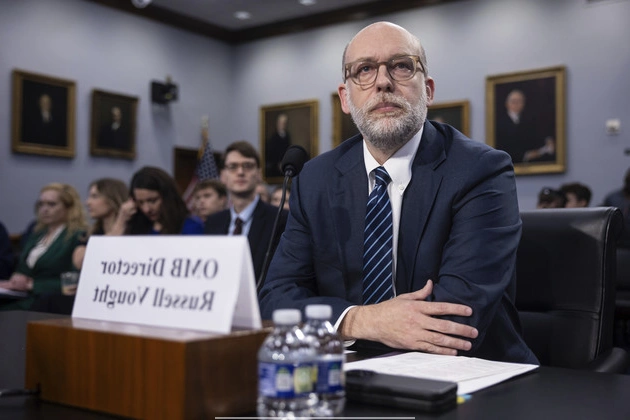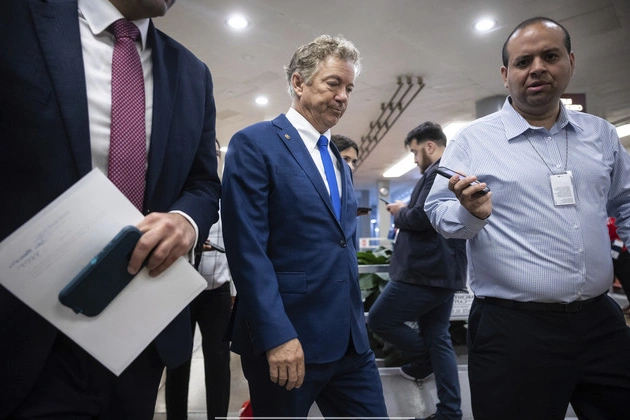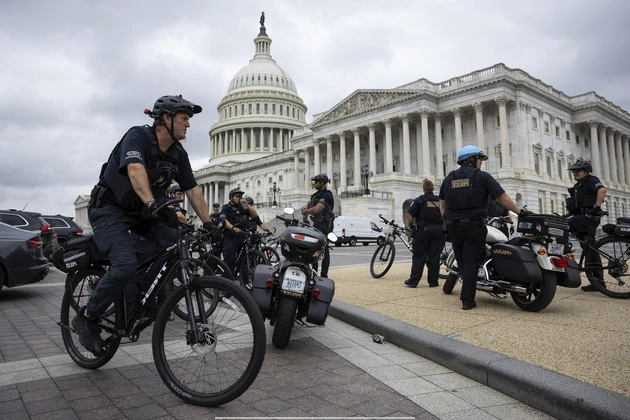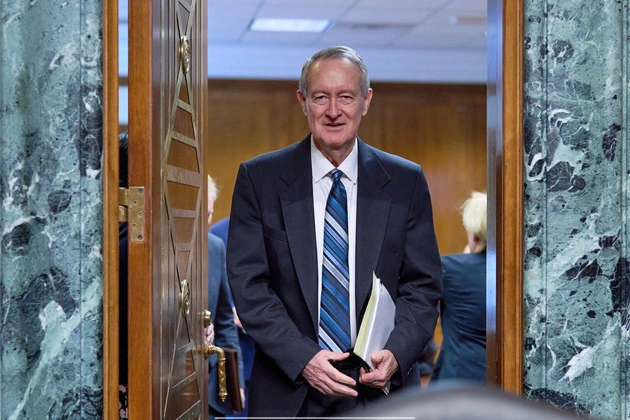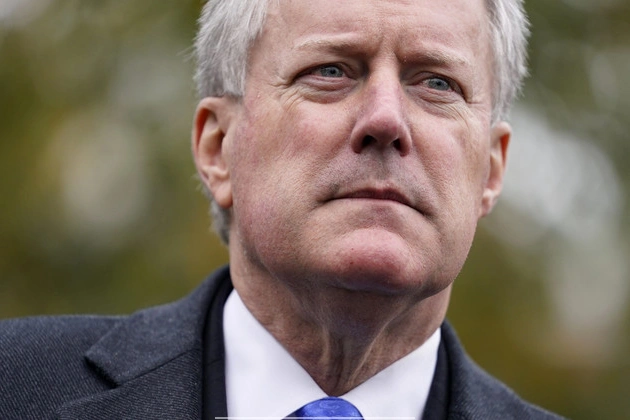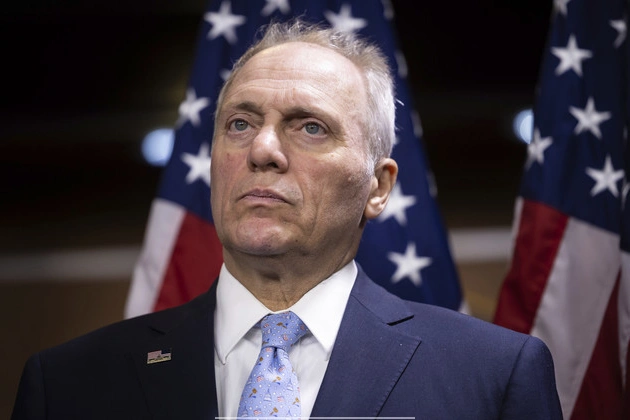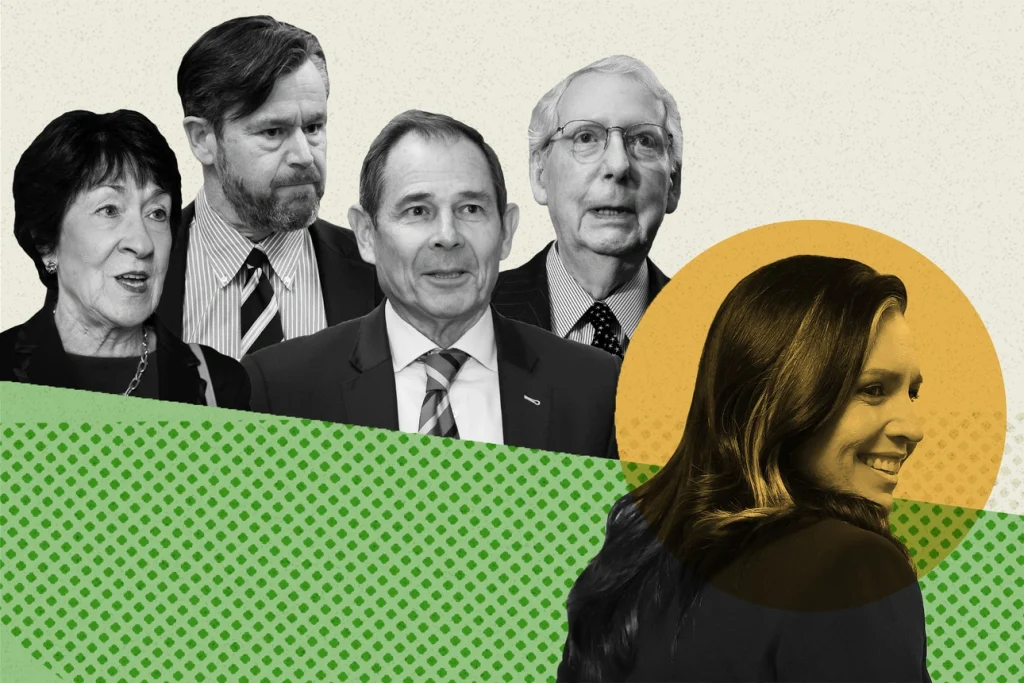
The Crucial Senators in the Decision on Tulsi Gabbard's Nomination
Tulsi Gabbard is on shaky ground with Senate Republicans. This week will determine if the director of national intelligence nominee will be able to find her footing.
The Critical Senators and Their Positions
Ahead of a Senate Intelligence Committee hearing Thursday, the fate of Gabbard’s nomination rests in the hands of a small handful of undecided GOP senators: Maine’s Susan Collins, Indiana’s Todd Young, Kentucky’s Mitch McConnell, and Utah’s John Curtis.
It’s not clear that Gabbard can make it to the Senate floor. With a one-seat GOP majority on the Intelligence Committee and Democrats on the panel firmly opposed, the opposition of any one Republican there could stop her nomination cold. At least three Republicans who sit on the committee are undecided given her unconventional background and past criticism of the national security establishment.
Senator Collins’ Stance
Collins is viewed as the Republican on the Intelligence Committee most likely to vote against Gabbard.
That’s partially because of Collins’ history as the last remaining blue-state GOP moderate who is willing to break with her party at times. She voted against Defense Secretary Pete Hegseth last week.
It’s also because Collins has voiced lingering questions for Gabbard even after meeting with her late last year. During the closed-door discussion, Collins pressed Gabbard on her previous visit with deposed Syrian president Bashar al-Assad, her views on Ukraine and Russian President Vladimir Putin, and a resolution Gabbard backed in the House in support of NSA leaker Edward Snowden.
Collins has remained undecided since then, signaling she still has unresolved questions about matters that include Gabbard’s position on a key U.S. surveillance program. Expect Collins to bring it up Thursday.
Senator Young’s Potential Vote
Young, who also sits on the Intelligence Committee, hasn’t yet said if he will support Gabbard’s nomination, citing the upcoming hearing.
Republicans view Young as a potential “no” vote given the reputation he has developed as a proponent of a muscular American foreign policy even as his party embraces isolationism. He was also one of only a few congressional Republicans who publicly said they wouldn’t back Trump during the presidential election.
Young has downplayed that he has active concerns about Gabbard, whom he met with earlier this month. But he’s also made clear that he has unresolved questions that he intends to press her on during the hearing.
Senator McConnell’s Influence
McConnell’s “no” vote on Hegseth should be viewed as a red flag for Gabbard.
The former top GOP leader hasn’t weighed in directly on Gabbard’s nomination — a spokesperson declined to comment this week — but his worldview is in many ways a complete mirror image of Gabbard’s. She has been critical of surveillance programs McConnell has championed, and they are polar opposites on issues such as the U.S. role in supporting Ukraine in its war with Russia.
Senator Curtis’ Decision
Curtis emerged as a wildcard when he said during a recent POLITICO event that Gabbard hadn’t done enough at that point to earn his support.
Though most first-term GOP senators are squarely in Trump’s wing of the party, Curtis is viewed as more moderate-minded, making him a potential swing vote. But he also came around to supporting Hegseth after initially indicating that he was undecided.
Stay tuned as these senators play a critical role in deciding the fate of Tulsi Gabbard’s nomination.






